How Long Is A Soccer Game? Full Time, Halftime, Extra Time
If you’re wondering: how long is a soccer game – this is for you.
Soccer, also known as the beautiful game, is a thrilling sport that captures the hearts of fans worldwide. One common question many people have is, “How long is a soccer game?”
Although there are 90 minutes of play; it’s not as simple as that. In this article, we’ll take a closer look at how long soccer games last, injury time, extra time, and differences between professional, college, and youth level soccer games.
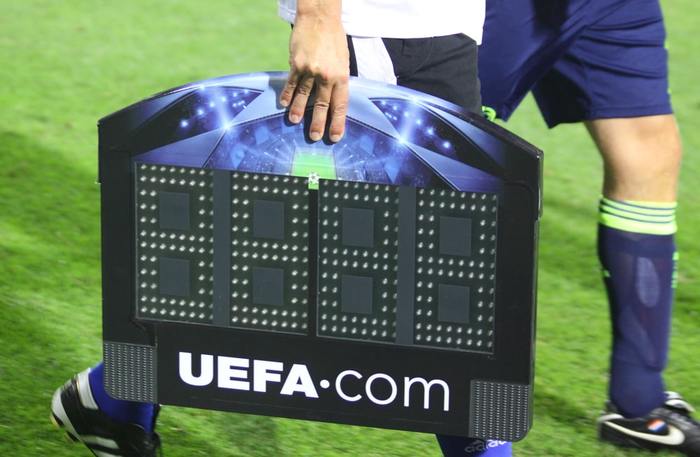
how long is a soccer game
How Long Is A Soccer Game
In this article, you can read through all 7 sections or skip ahead to the topics that are most important to you. Make sure to watch the video tutorials included and stick around until the end for a special free gift that is guaranteed to make you a better soccer player.
- How Long Is A Soccer Game on Average?
- How Does Injury Time Work In Soccer?
- How Does Extra Time Work In Soccer?
- How Long Is A Soccer Game Halftime?
- How Long Is A Soccer Game In World Cup?
- How Long Are Soccer Games (College, High School, Youth)
- How to become a better soccer player, improve faster & achieve more!
I hope this article helps you understand how long is a soccer game. Let’s go!
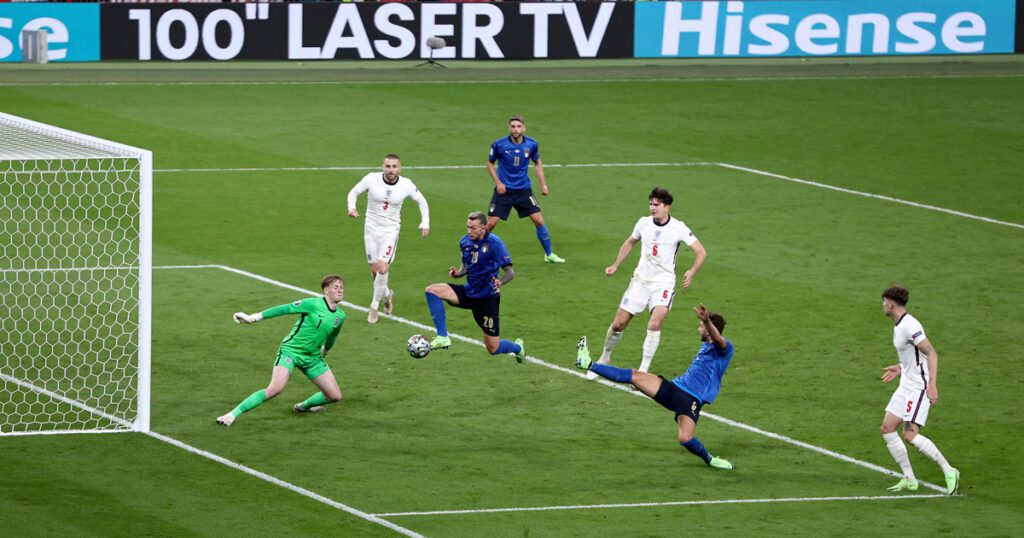
How Long Is A Soccer Game on Average?
A standard soccer game consists of two halves, each lasting 45 minutes, for a total of 90 minutes of regular playing time. However, it’s important to note that the actual time a soccer game takes can be longer due to stoppages in play.
Referees may add additional time, known as “injury time” or “added time,” to compensate for stoppages due to injuries, substitutions, or other delays.
In professional soccer matches, the referee typically keeps track of the stoppages and adds an appropriate amount of extra time at the end of each half. This added time is usually a few minutes and is meant to make up for time lost during the game.
So how long is a soccer game on average? Although, the scheduled time for a soccer match is 90 minutes, the total time, including stoppages and added time, can vary. In some cases, particularly if there have been many stoppages, a soccer game may extend beyond 90 minutes.
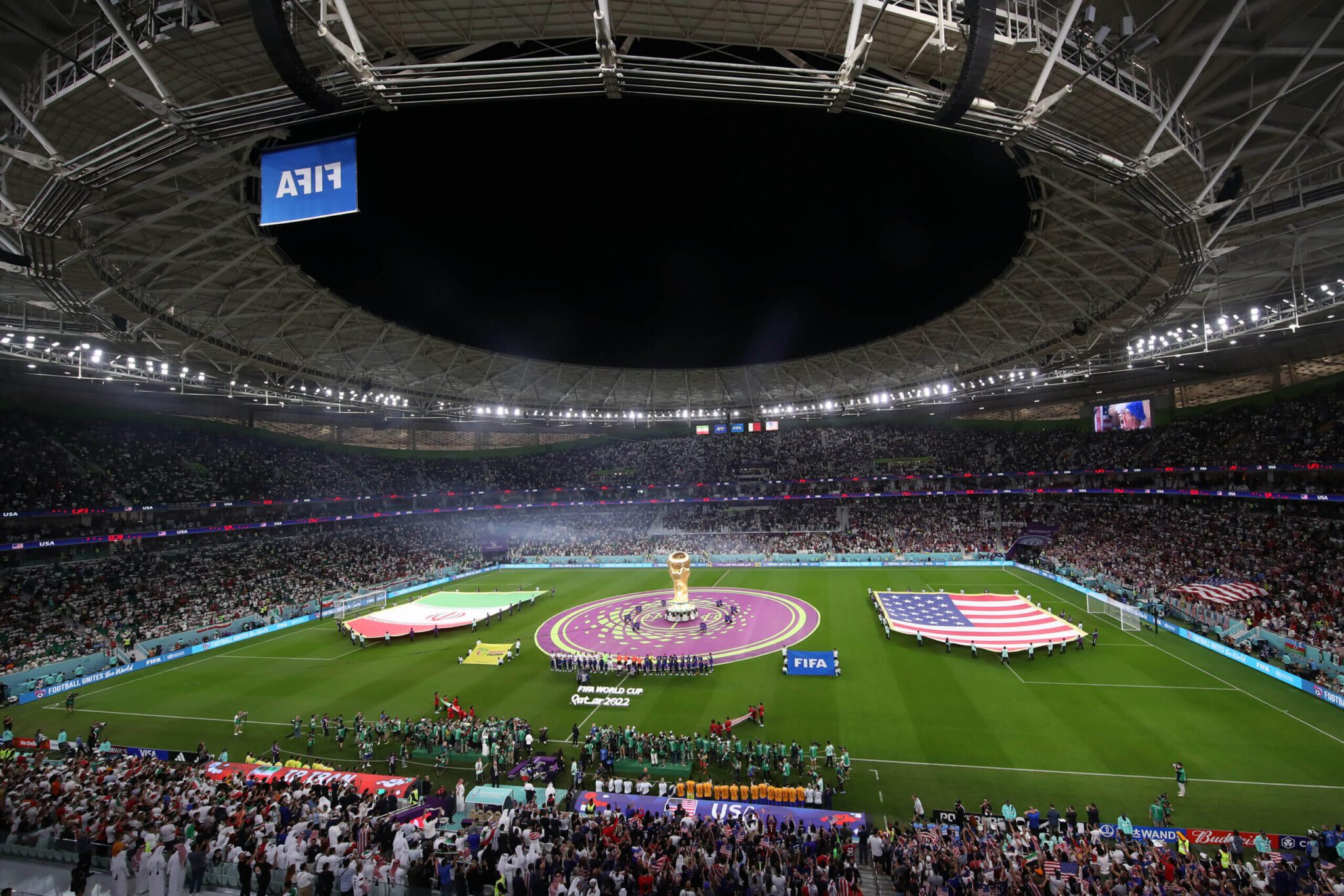
How Does Injury Time Work In Soccer?
In soccer, injury time, also known as stoppage time or added time, is additional time added to the end of each half to compensate for delays that occur during the normal course of play.
The referee determines the amount of injury time based on various stoppages that occur, such as injuries, substitutions, time-wasting, and other interruptions.
Here’s how injury time works in soccer:
- Stoppages during the half: The referee keeps track of stoppages during the regular 45-minute halves. This includes time spent attending to injured players, substitutions, and any other delays.
- Board display: In professional matches, the fourth official on the sideline holds up an electronic or manual board to indicate the amount of injury time that will be added. This information is also communicated to the teams and spectators.
- Minimum additional time: The referee is required to add a minimum amount of injury time, usually indicated by the fourth official. This is often a conservative estimate to ensure that the match includes an appropriate amount of compensation for stoppages.
- Actual time played: The clock doesn’t stop during regular play, and the 45 minutes for each half are continuous. Injury time is added at the end of each half, so the game may extend beyond the scheduled 45 minutes.
- End of the match: The match officially concludes when the referee signals the end of the added time. The team with the most goals at this point is declared the winner. If the score is level, the match may end in a draw, or in knockout competitions, it may go to extra time or a penalty shootout.
Injury time is a way to ensure that the total time played in a match reflects the actual time the ball is in play, accounting for stoppages and delays. The amount of injury time can vary from match to match based on the events that occur during the game.
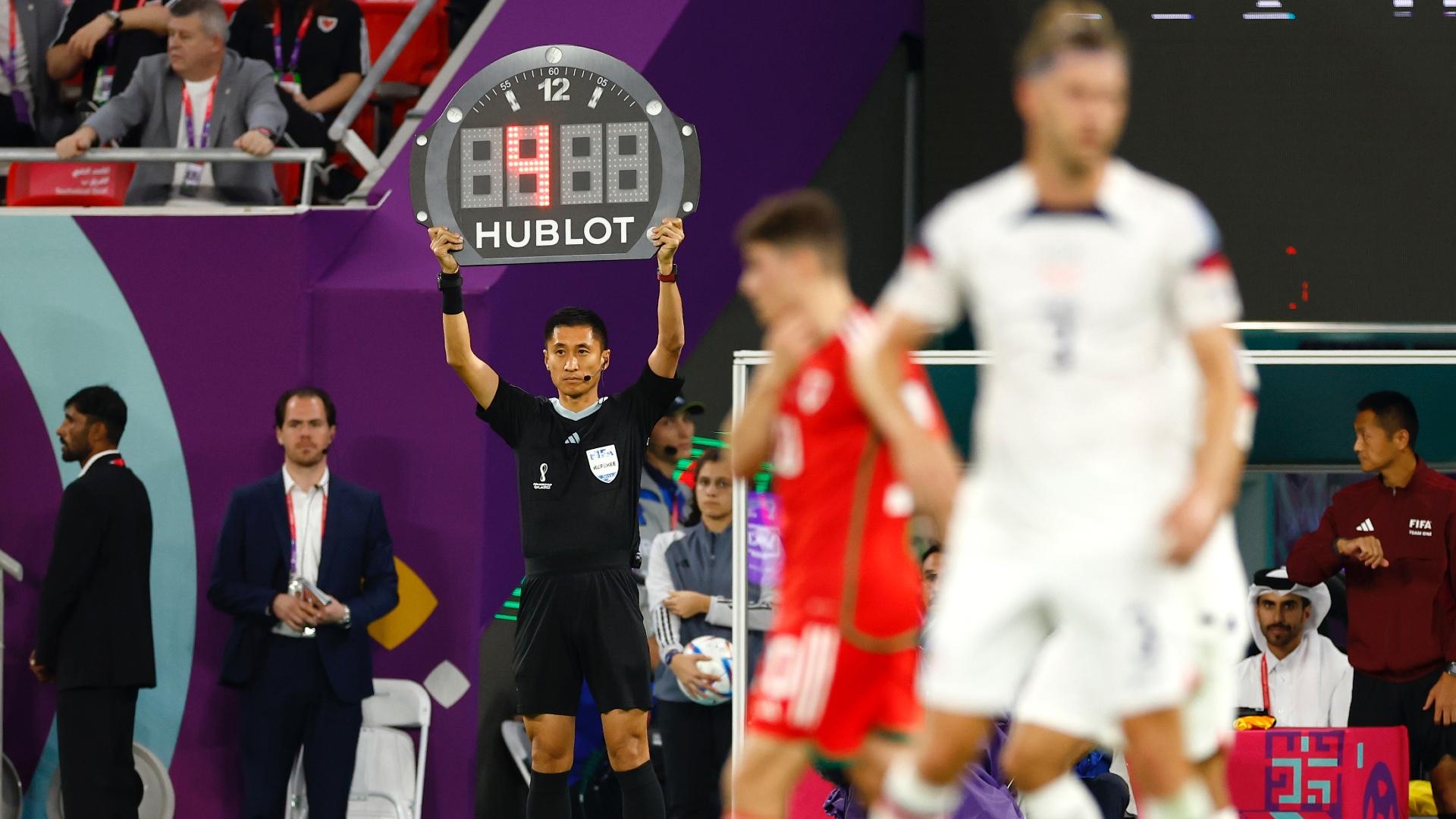
How Does Extra Time Work In Soccer?
Extra time in soccer is an additional period of play that is added to certain knockout-stage matches when the score is tied at the end of the regular 90 minutes. Extra time is used to determine a winner in situations where a match must have a clear result, such as in knockout rounds of tournaments.
Here’s how extra time works in soccer:
- Regular match duration: A standard soccer match consists of two halves, each lasting 45 minutes, for a total of 90 minutes of regular playing time.
- Tied score at the end of regular time: If the score is tied at the end of the regular 90 minutes, and the competition format requires a winner, extra time is played.
- Extra time periods: Extra time consists of two additional periods, each lasting 15 minutes. These periods are played consecutively, without a break in between.
- Teams switch ends: At the end of the first 15-minute period of extra time, the teams switch ends of the field.
- No golden goal rule: In most modern football competitions, the golden goal rule, where the first team to score in extra time wins instantly, is no longer in effect. Instead, the full 30 minutes are played, regardless of goals scored.
- If tied after extra time: If the score is still tied at the end of the 30 minutes of extra time, the match may be decided by a penalty shootout. Penalty shootouts involve each team taking a series of penalty kicks to determine the winner.
How long is a soccer game during knockout stages in tournaments? Some soccer games can last 120 minutes, plus any additional time (injury time) accumulated during the extra time periods.
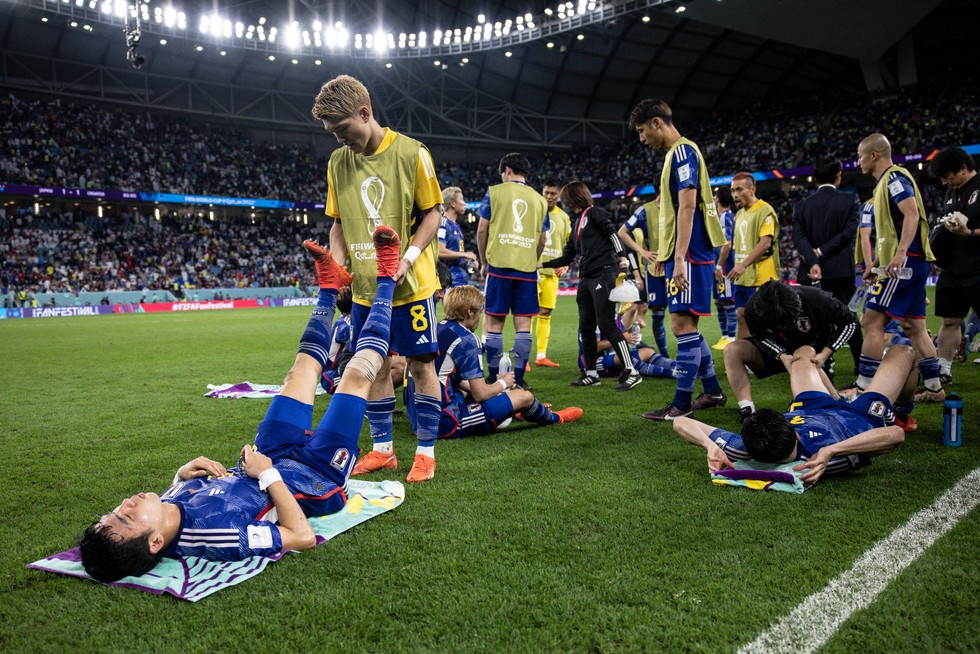
How Long Is A Soccer Game Halftime?
The halftime break in a soccer game typically lasts for 15 minutes.
This break provides players with an opportunity to rest, rehydrate, and receive instructions from their coaches. During halftime, teams often make substitutions or tactical adjustments based on their performance in the first half.
It’s worth noting that the duration of halftime can vary in different competitions or leagues, especially at the youth or amateur levels. In some cases, the halftime break might be slightly shorter or longer, but the standard duration is 15 minutes in professional soccer matches.
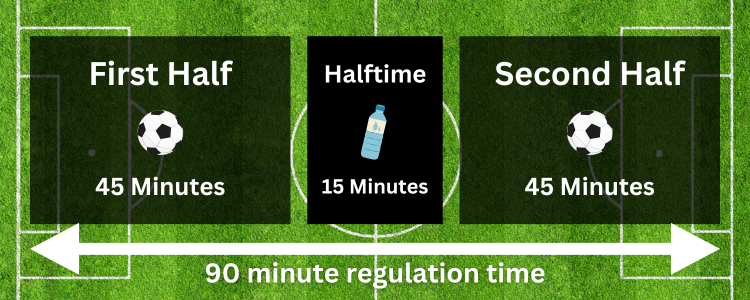
How Long Is A Soccer Game In World Cup?
In the FIFA World Cup, like in most top-level international soccer competitions, a standard soccer game lasts 90 minutes, divided into two halves of 45 minutes each. If the score is tied at the end of the regulation time, the match may proceed to extra time.
During the knockout stages of the FIFA World Cup, if a match ends in a draw after 90 minutes, two additional periods of 15 minutes each, known as extra time, are played.
These extra time periods are played in their entirety, regardless of whether goals are scored. If the score remains tied after extra time, the match is typically decided by a penalty shootout.
The group stage matches in the World Cup follow the same format, with a 90-minute duration and the possibility of a draw. However, in the group stage, each team earns points for a draw, and tiebreakers (such as goal difference) are used to determine the standings.
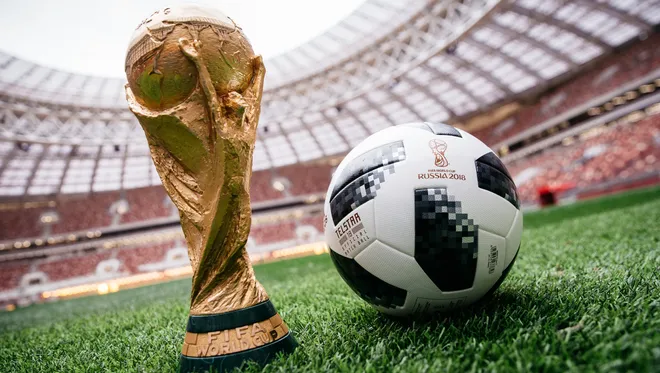
How Long Are Soccer Games
The duration of soccer games can vary at different levels of play. Here’s a general overview:
- How Long Is A Soccer Game in College:
- In NCAA college soccer, a standard game consists of two halves of 45 minutes each, totaling 90 minutes of regular playing time.
- Like in professional soccer, if a match is tied at the end of regulation, some college soccer competitions may proceed to two periods of extra time, each lasting 10 minutes.
- If the match is still tied after extra time, it may be decided by a penalty shootout.
- How Long Is Soccer Game in High School:
- High school soccer games typically follow a similar format to college soccer.
- The standard duration is two halves of 40 minutes each, for a total of 80 minutes of regular playing time.
- Some high school competitions may have variations in game duration, so local rules should be checked for specific details.
- How Long Is A Soccer Game in Youth Soccer:
- Youth soccer game durations can vary depending on the age group.
- For example, in many youth leagues, U-6 and U-8 games might have shorter halves, often around 20-25 minutes each.
- As players get older, game durations increase. For U-10 and U-12, games might have two halves of 25-30 minutes each.
- In older age groups, such as U-14 and above, game durations might approach the standard 45-minute halves.
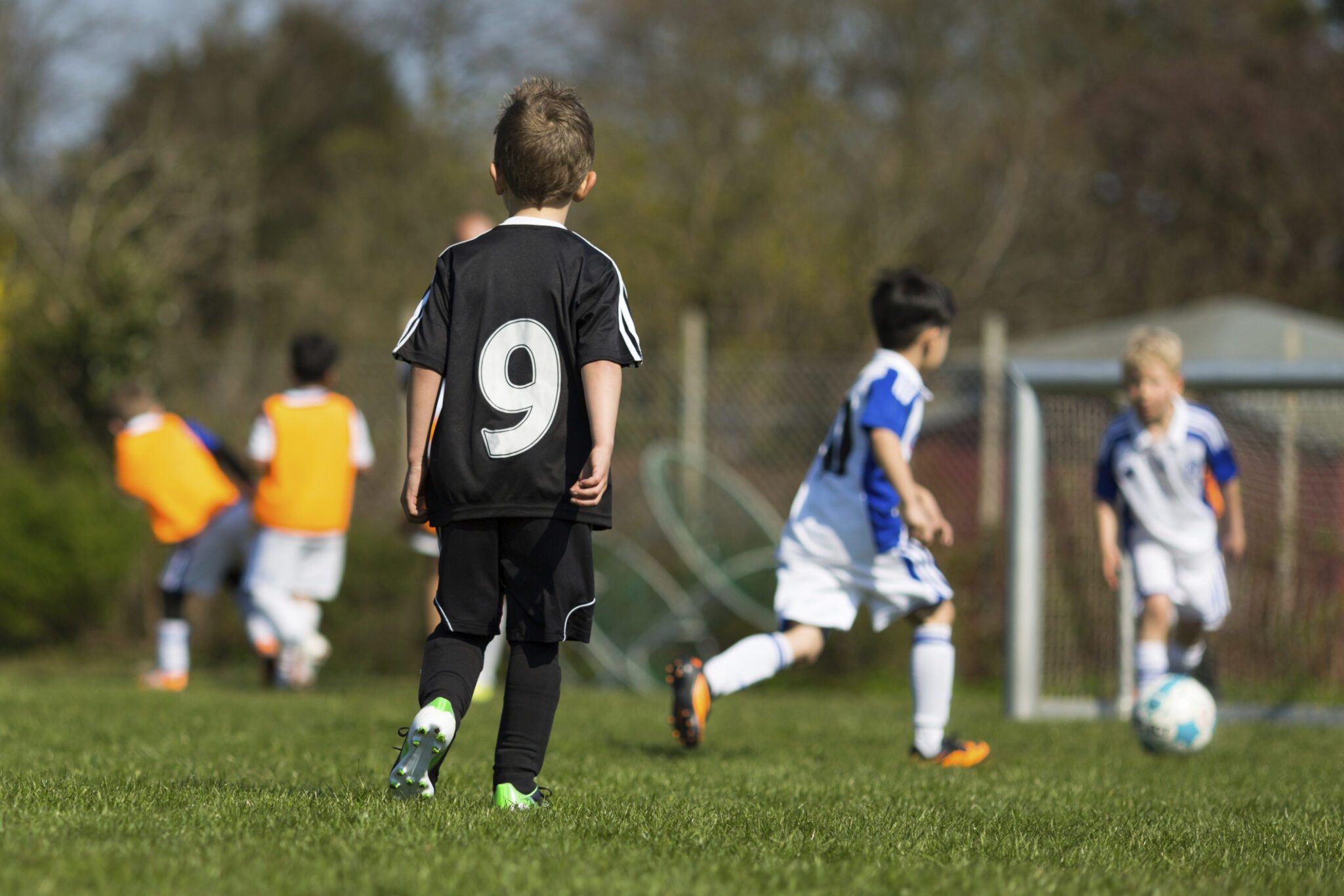
How Long Is A Soccer Game Usually
In soccer, time is more than just the clock ticking away — it’s a part of the game’s story. Injury time adds unexpected moments, and extra time in big matches keeps us on the edge of our seats.
Looking at how long soccer games last in college, high school, and youth soccer shows how the sport fits different age groups.
And in the grand World Cup, 90 minutes can turn into extra time and even penalty shootouts.
Understanding how long a soccer game is helps us see it as more than just a game — it’s a global excitement that brings people together, no matter where they’re from.
Hopefully you found this article about how long is a soccer game helpful.
(if so, keep reading)
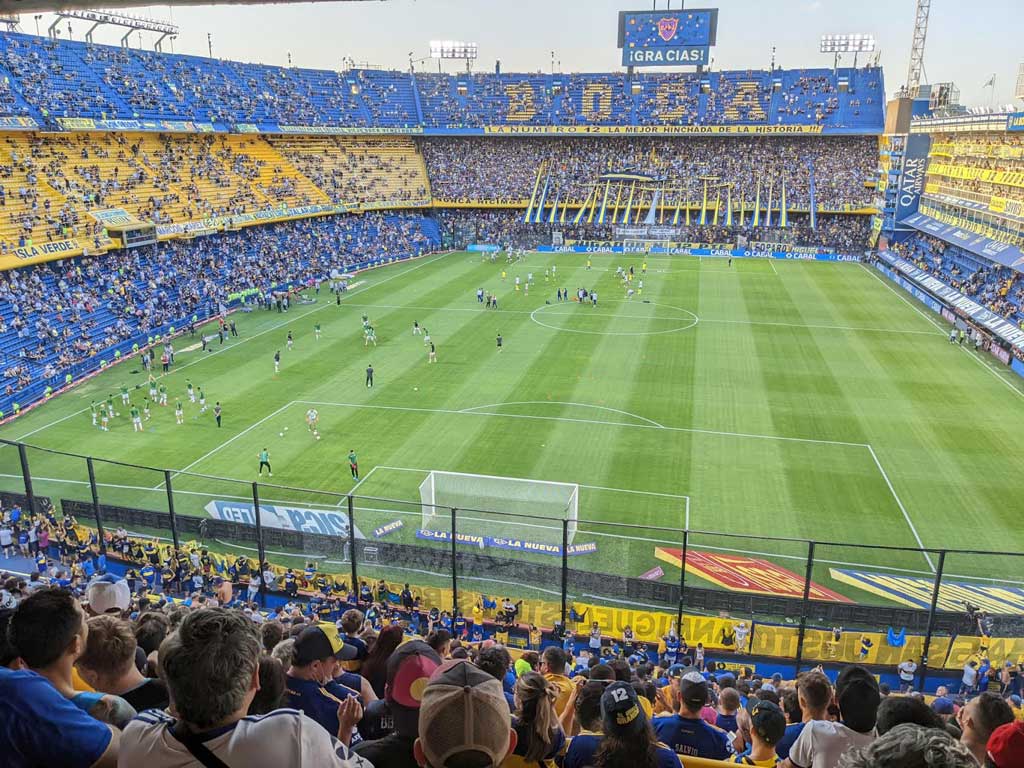
Soccer Player or Parent?
If you want to become a better soccer player, check out this 3-minute video. It’s not just another tutorial — it’s designed to help you unlock your full potential on the soccer field.
Whether you’re a beginner or an advanced player, the video explains how to improve your skills, develop your mindset, soccer IQ, and enhance your physical fitness.
This is about building a foundation for long-term success. You can start playing better, getting more respect from teammates, impressing your coaches, and performing with confidence under pressure.
Ready to take your soccer game to new heights?
Watch the video and discover how can your player transformation today:
Improve Your Game Today
Imagine the satisfaction of looking back and realizing that today was the day you decided to push yourself a little harder, run a little faster, and train a little longer. Tomorrow’s success is built on the decisions you make today.
Don’t wait for the perfect moment; make this moment perfect by committing to your improvement. The path to greatness isn’t found in procrastination — but by taking action today.
Seize the opportunity, embrace the challenge, and let your progress today be the driving force behind your triumphs tomorrow. Your journey to greatness starts now.
If you really want to take another strong step in the right direction…
( continue reading )
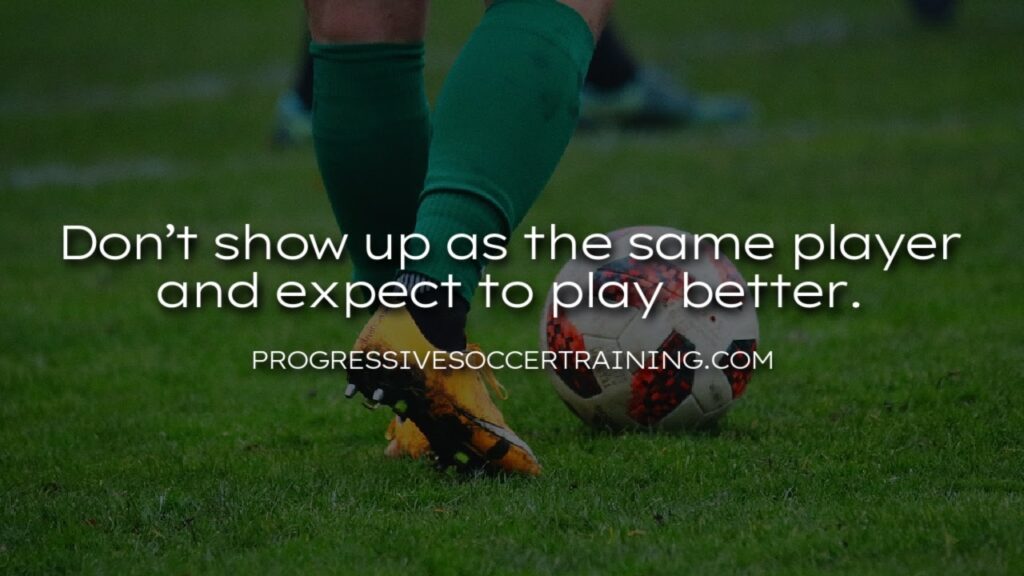
The Next Step
If you found this article helpful, you’ll absolutely love The Soccer Success Planner.
Are you tired of feeling like you’re not making progress in your soccer skills? Do you want to have a more organized and effective training routine? Do you struggle with setting and achieving your soccer goals?
If you answered yes to any of these questions, then the Soccer Success Planner is perfect for you. This planner will help you stay motivated, focused, and on track towards achieving your soccer goals. And it’s completely customizable to fit your unique needs!
Use the planner to set clear goals, track your progress, and stay accountable to yourself. With helpful prompts and exercises, you’ll be able to identify your strengths and weaknesses, plan your training sessions, and maximize your performance on the field.
Download your free copy now and start taking control of your soccer success today! You can download it here – Soccer Success Planner

Want To Improve Faster?
Not getting better at soccer? Confused about how to train effectively? Maybe you’re worried that you won’t be properly prepared for your next big opportunity? Or you just want to standout and actually feel respected by your teammates, coaches, and friends?
Whatever struggles you’re going through, The Online Soccer Academy is the best solution to help you overcome obstacles and achieve goals. Thousands of satisfied players have already taken the next step and achieved incredible results in record time.
With expert coaching, structured player development systems, and easy-to-follow training routines, it’s guaranteed to elevate game.
Join today and start experiencing the transformation you’ve been waiting for!
Get more information here – Online Soccer Academy

About The Author
If you don’t know about me…
I used to be a soccer player who struggled with self-confidence. I felt slow, weak, and unmotivated. My coaches didn’t pay much attention to me, my friends laughed at my lack of skills. At one point, I even became so discouraged that I quit the sport altogether.
Enough was enough. I decided to take control of my own development and set out on a journey to become a better soccer player. This path led me on an incredible journey of self-improvement.
I went on to win league and goal-scoring titles, earn awards, lift trophies, and received a college scholarship. I’ve even earned international caps for my country.
I started sharing my knowledge with others and teaching them how to become the best soccer players they could be. My YouTube channel grew to over 500,000 subscribers.
In addition, I coached for several youth clubs in my local city, and even started my own soccer training company. I went on to coach the most prestigious men’s club in my city for several years.
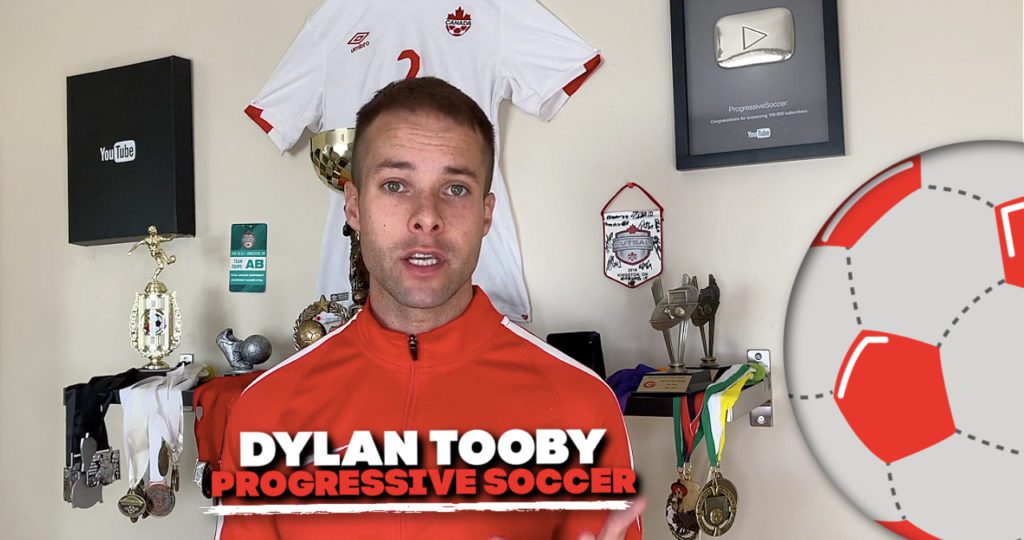
But enough about me, let’s focus on you.
If you’re looking to improve your skills, let’s take your soccer game to the next level. I want to help you make a noticeable change in style of play and overall performance on the field.
I’m passionate about helping players achieve their goals in soccer, and I’d love to be a part of your journey. I can help you reach your goals faster and achieve more in this sport, but I won’t force you. If you’re ready to take the next step, here’s what I suggest you do:
1) Download The Soccer Success Planner (FREE)
2) Apply To The Online Soccer Academy (Limited Spots)

Want more soccer training content?
Here are some related soccer articles you might enjoy:
How To Improve Footwork In Soccer
How To Score More Goals In Soccer
Wishing You Success In Soccer
Coach Dylan
Progressive Soccer
Thank you for reading this article:
How Long Is A Soccer Game? Full Time, Halftime, Extra Time
